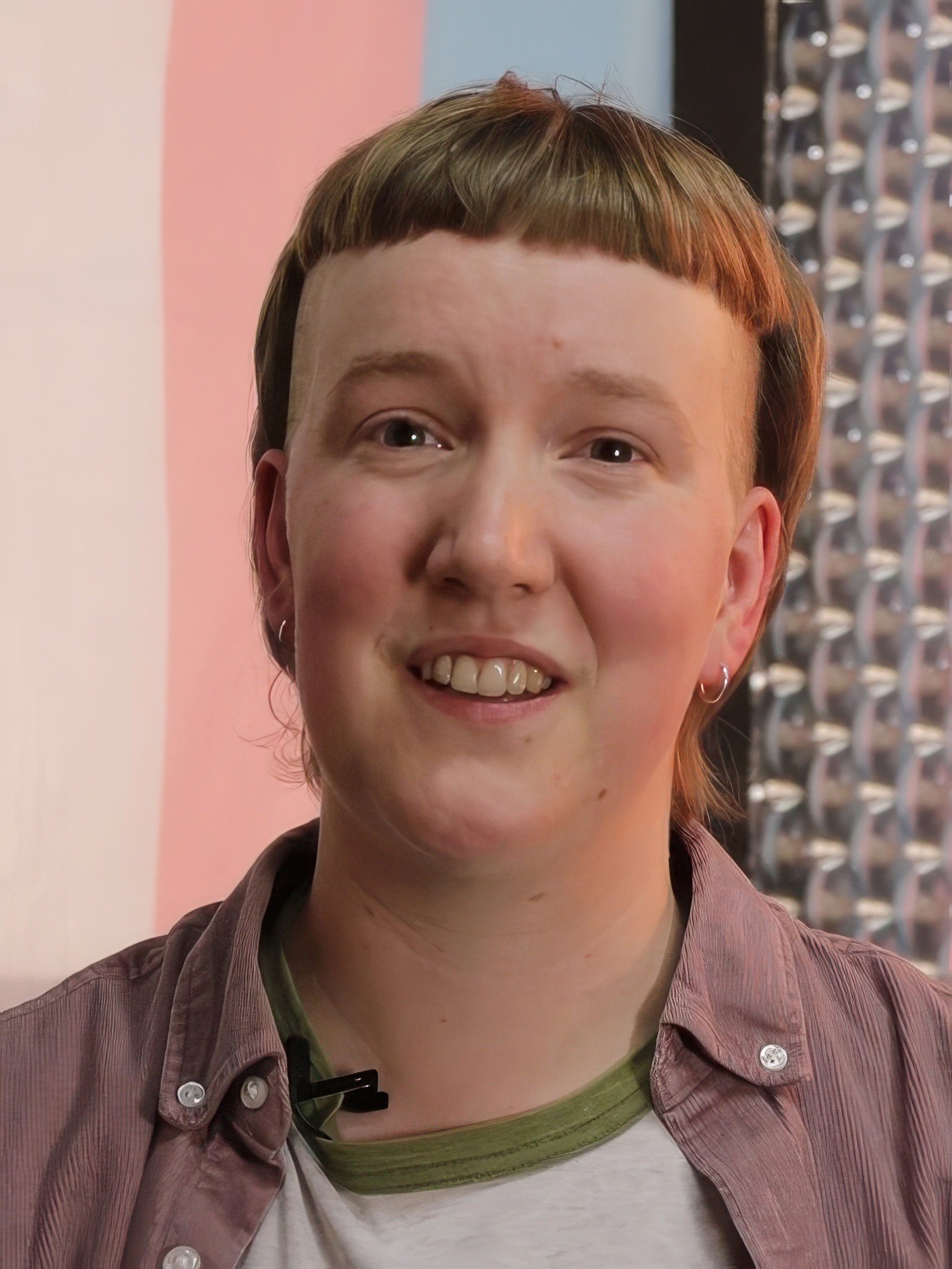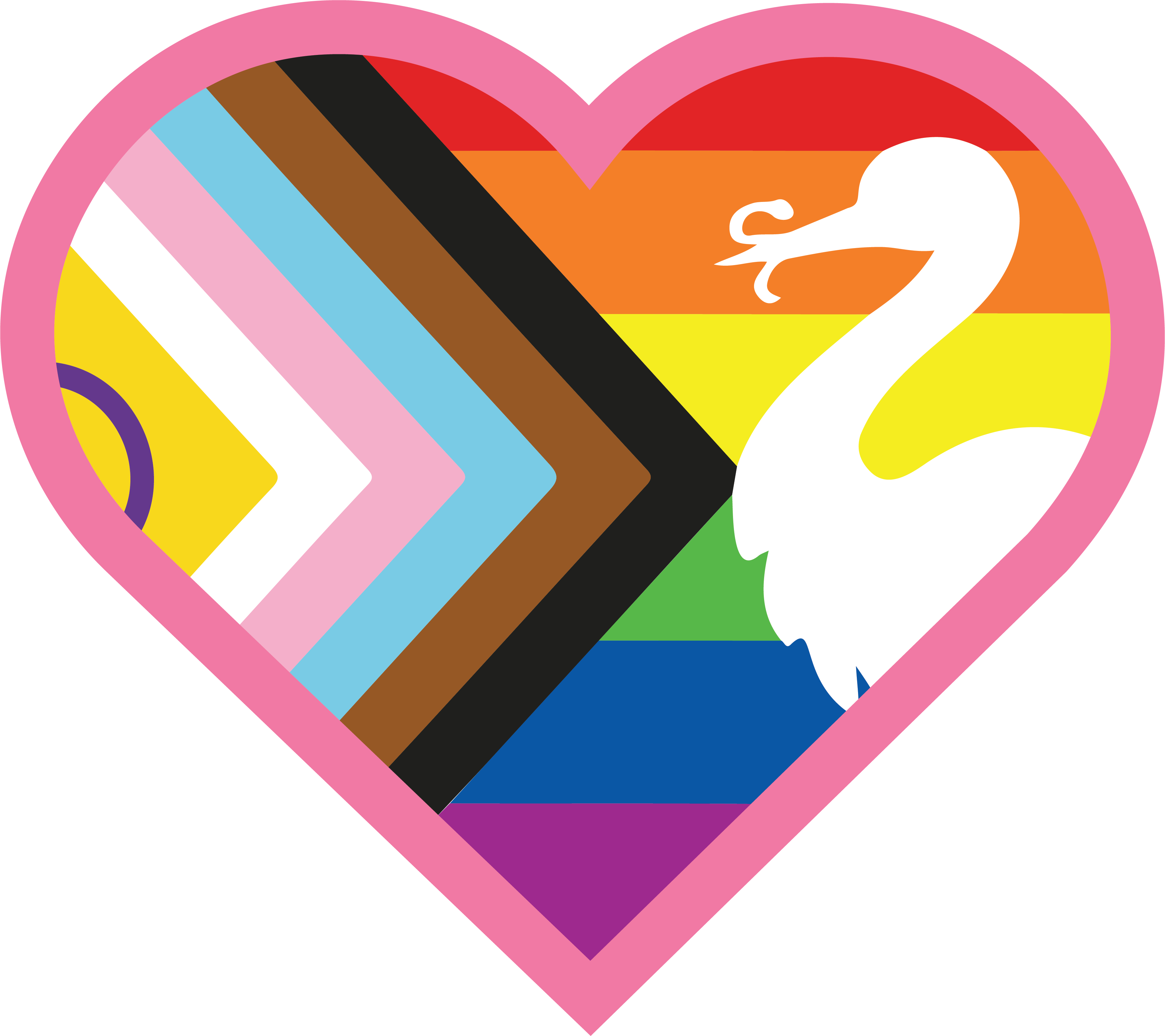Mart tells his story about change: what is it like to find out that you do not belong in the body you were born in and how do you deal with that. How do you find connection in change with each other? Mart celebrates his identity by meeting others and celebrates Pride because it is his home, the place where you can truly be yourself and to celebrate all the freedom to be yourself.
Watch the video here or read his story.
Introduce yourself…
I am Mart, I am 28 and I live in The Hague. My pronouns are die/diens or hen/hun and I am a musician, theatre maker and I work a lot with choirs and with music.
During Pride I will perform my show Het eerste avondmaal, which is about my story as a trans person. I am non-binary and I actually take the audience to my table, together with my musicians, into what it feels like to be in transition. I realised quite quickly when I was in transition, that it is a very exceptional story and at the same time very universal, because we all have to deal with change. At the same time, we often do that alone, because it is quite difficult to connect with that. So I tell my story about what it felt like to grow up as a girl, not feeling at home there, what it is like to break away from that and find a way to think: who am I, how do I shape that and how do I become happy in that. In my case I become Mart. That is what the show is about; about that whole journey.
What did that journey bring you?
The biggest difference for me, after my transition, was mainly that I had the energy to live my life. The moment you don’t feel safe in the body you were born in, you spend all day dealing with it. To look around your body, every time you walk past a car window. To look beyond the forms of address, just because you just want to live your life and because you know you have to wait. That takes a lot of energy and it also makes sure that you don’t do certain things. In my case, I am a creator and I create, and I make music. That means that you are on a stage as yourself and that is very difficult at the moment that you can’t be yourself. Eventually there was the opportunity for me to go into transition, that made sure that I could do this: That I could stand on that stage.. But it also made sure that I had closer friendships, because I could share myself much more. Because I felt comfortable and because of that I could also let people closer. That I could start a relationship, because there was room for that. So there’s just so much more happiness and so much more, yeah, light.
What would you like to pass on to your younger self?
I would tell my younger self that it took a lot to get where I am now and that it was really worth it. It’s still not easy to be queer. Sometimes explicitly not because you have to deal with discrimination or prejudice. But also often implicitly not, because you are just constantly confirmed in your deviation. It takes a long time before you learn to stay true to yourself in that. So I wouldn’t say, ‘oh, it will all work out by itself.’ It is hard work to be happy as a trans person or as a queer person in my case. But it is so worth it. And yes, I would say, don’t wait too long and take that risk, and do that work. Yes, go find your happiness.
What would you like to see differently now?
I think that from my experience there is still a long way to go before there is really room to live freely as a trans person. I think it is important to see what it can do to someone when you cannot choose how you live in your own body. As a trans person it is now very nice to finally be happy and free in my body but that took a very long time. It would not have taken so long if transgender care in the Netherlands had been organized differently, if people’s stories were central. There is a lot of debate about it now, and it is about a lot of things, but rarely about the needs of trans people and trans children who have to wait a very long time before they get help. That is often simply due to ignorance. I think that the experience of not being able to choose for years about what you do with your own body, that does something to you, that you simply do not have self-determination. That is why I think it is very important that more attention is paid to that, to what that does to someone.
How do you celebrate your identity?
I celebrate my identity a lot in my work. What I really like about being queer is that you are forced at a young age to look beyond what the world presents to you, especially in the case of being trans. You are still presented with two boxes: boy or girl. You learn at a young age to be curious out of necessity about what else is out there. That curiosity is a lot of fun and for me it is very much in my work as a maker, as a musician, and as a theater maker. It is very contagious. The moment you are very much yourself and very curious about others, that invites others to be themselves too. Because of that I meet people much more as they really are, because I really am who I am. That is how I celebrate my identity every day: by being who I really am and thus meeting others who are also as they really are.
What does Pride mean to you?
I think that during Pride we celebrate how far we have come, but we also call attention to how far we still have to go and what we have to preserve. Within our community, I think we still have a long way to go to see that we make room for all experiences. Some people face adversity because of being queer. Some people also face racism or other forms of discrimination. I think it is really important that when you know what it is like to be in the minority, and to be disadvantaged because of that, that you also stand up for people who are going through the same thing based on different experiences. I think that is really important and even more so now.
Why is Pride The Hague important?
Pride The Hague is important to me because this is my home. It is a party to celebrate the freedom of everyone: not just queer people and not just me, but all the freedom to be yourself: everyone benefits from that. I think it is very important to be a member of my community as a queer person. Most of the people I am with in my daily life are not queer, but I like to celebrate the same with them. Because in the end we all benefit from that space to be yourself. So for me, Pride is important because it is an opportunity to be outspokenly queer, but with the whole city that is my home. I just really like that.
In the context of Pride The Hague 2024, stories are shared from people from the queer community of The Hague.
If you want to share your own story, click here for more information .





